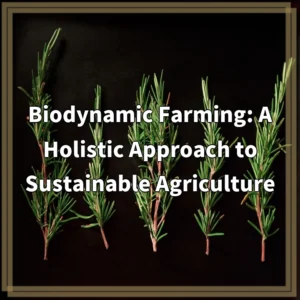What is Responsible Consumption?
Responsible consumption is about making conscious choices in our everyday lives to reduce our negative impact on the environment and society. It involves considering the entire lifecycle of products and services, from production to disposal, and selecting options that are more sustainable and ethical.
Real-World Problems Associated with Responsible Consumption
1. Overconsumption and Resource Depletion
One of the main problems associated with irresponsible consumption is overconsumption. The continuous and excessive consumption of resources, such as fossil fuels, water, and land, leads to their depletion and puts a strain on the environment. This results in habitat destruction, biodiversity loss, and increased greenhouse gas emissions, exacerbating climate change.
2. Waste Generation and Pollution
Irresponsible consumption contributes to the generation of vast amounts of waste. From single-use plastics to electronic waste, the improper disposal and management of these products have detrimental effects on the environment. Landfills release greenhouse gases, leach harmful chemicals into the soil and water, and pollute ecosystems, consequently harming both wildlife and human health.
3. Social Injustice and Labor Exploitation
The products we consume are often sourced or produced under poor working conditions and exploitative labor practices. Workers in industries such as fashion, electronics, and agriculture can face hazardous environments, low wages, long hours, and lack of workers’ rights. Irresponsible consumption perpetuates these unfair practices and denies workers their basic human rights.
4. Deforestation and Wildlife Exploitation
Many industries, such as palm oil, timber, and agriculture, contribute to deforestation and habitat destruction. As forests are cleared to make way for plantations or urbanization, countless species lose their natural habitats and face the risk of extinction. Unsustainable fishing practices also deplete marine resources, threatening the balance of ecosystems and endangering marine species.
5. Climate Change and Carbon Footprint
Irresponsible consumption, especially in terms of energy and transportation choices, contributes to the release of greenhouse gases. The burning of fossil fuels for electricity, heating, and transportation is a significant driver of climate change. Additionally, the carbon footprint of imported goods involves long transportation distances, further contributing to emissions and climate impact.
6. Inequality and Access to Resources
Irresponsible consumption patterns contribute to inequality and the unequal distribution of resources. Many communities and regions lack access to clean water, education, healthcare, and basic necessities while others are over-consuming. This disparity exacerbates social and economic inequalities, leading to systemic issues and further marginalization of disadvantaged populations.

Solutions for Responsible Consumption: Towards a Sustainable Future
1. Conscious Consumption and Minimalism
Becoming more mindful of our consumption habits is a crucial step towards responsible consumption. Embracing minimalism and consciously choosing quality over quantity can help reduce overconsumption and minimize waste generation. By only purchasing items we truly need and opting for durable, sustainable products, we can reduce our environmental impact.
2. Sustainable Production and Fair Trade
Supporting companies that prioritize sustainable production practices and fair trade can make a significant difference. Look for certifications like organic, fair trade, and eco-friendly labels when making purchasing decisions. By choosing ethically produced goods, we can promote better working conditions and discourage harmful practices that exploit both workers and the environment.
3. Waste Reduction and Recycling
Taking steps to reduce waste and recycle properly is essential. This includes adopting practices like composting, using reusable containers and bags, and avoiding single-use items. Additionally, supporting businesses and communities that promote recycling initiatives and offer proper waste management can help reduce pollution and contribute to a circular economy.
4. Supporting Sustainable Agriculture and Responsible Fishing
Choosing sustainably sourced and locally produced food can help reduce the environmental impact of our diet. Support farmers who embrace regenerative farming practices, organic agriculture, and fair labor standards. Similarly, opting for sustainably caught seafood and avoiding unsustainable fishing practices can help protect marine ecosystems and the livelihoods of fishing communities.
5. Renewable Energy and Energy Efficiency
Transitioning to renewable sources of energy, such as solar or wind power, can significantly reduce our carbon footprint. Additionally, adopting energy-efficient practices like using LED light bulbs, properly insulating buildings, and minimizing energy consumption can help combat climate change and reduce environmental degradation.
6. Education and Advocacy
Promoting education and awareness about responsible consumption is key to fostering widespread change. By sharing knowledge and resources, advocating for sustainable policies and practices, and engaging with communities, we can create a collective impact. Encouraging others to make conscious choices and supporting sustainability initiatives can lead to a more sustainable future for all.













